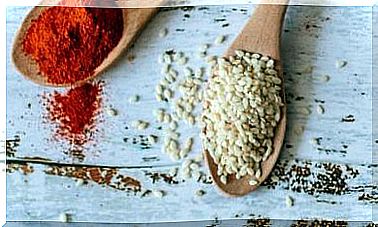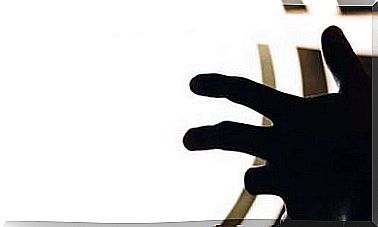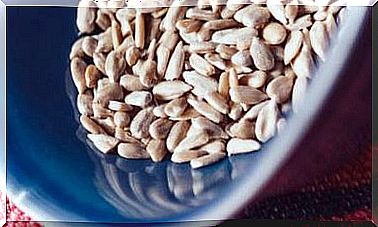We All Come Prepared To Improve Ourselves
The story of Fatima explains to us how all of our learning points us towards the best version of ourselves. Let’s feed the most constructive

Undoubtedly disturbing winds are blowing around us. It is time to trust ourselves and those around us. Time to unite and support ourselves to overcome the difficulties posed by reality. Time to do everything we know and can to overcome difficulties, and to learn what we still do not know, even at the cost of some troubles.
Overcoming: the desire to always be better
In colloquial language, overcome means “to go from something bad to something good”, “from something good to something better” and “from something better to something even better”. A path without limits towards the ceiling of our possibilities, if this limit exists, because, as popular wisdom affirms, “you can always be better” (my father, laughing, was busy adding, not without some reason, “And it can always be worse”).
In a more existential sense, the desire to excel should be understood as an internal force that pushes us not to remain prisoners of adversity; the willingness to fight to be in the best possible place, and also the desire to be better – as long as that “being better” is compared to oneself.
I’m not talking about making more money, or at least I’m not just talking about that.
I’m not talking about being the most handsome or the most beautiful, or at least, I’m not just talking about that.
And in no way am I talking about having more power in any of its forms.
I speak of the determination to be a better person every day, having as a basic reference and starting point an honest assessment of who I am at all times.
Ask yourself, listen to yourself and look at yourself
Because … how could I improve if I don’t know? And how could he know if I don’t even look at myself? How could I begin to change in a certain direction, however desirable it may be, without knowing where I am starting from?
Some very lucky people learn to listen to themselves very quickly. They identify what makes them happy and what excites them. They are men and women whose firm desire to improve allows them to be certain that they are capable of creating the circumstances they need to make some of their dreams come true.
They are people who trust their choice, who are committed to it, who are willing to pay the necessary price, able to give up a certain degree of pleasure in pursuit of a higher end.
Let’s take a simple example, perhaps too simple: it is clear that studying while working, to earn our daily bread, implies resignations and unpleasant postponements in the short term; but, although nothing can guarantee final success, those who dare to do so passionately bet that this “investment” of time, stolen from more pleasant things, will multiply their possibilities in the future.
Finally, from our professional language, limited to what happens from the skin inwards, we speak of overcoming each time we refer to the struggle to overcome those aspects of our personality that are not constructive or kind.
They are those schemes that we usually call “negative” and that end in a pessimistic look, distrust, aggressiveness, resentment or suspicion. They are models that are nourished by our history and our mandates, but which are updated every day in the tortuous links with the environment and thus become more and more complicated, precisely because of this.
The story of the eagle and the jackal
A young warrior asks for an audience with the chief. The chief of the tribe has a reputation for being very wise and having an answer to everything. Once in front of him, the young man confesses that he is very restless, that he feels that inside him there is the spirit of an eagle and that of a jackal that are always fighting each other.
“When the eagle takes command, I am able to fight for my own thing, I am strong, ambitious and I can feed others with what I hunt.” But when the jackal emerges, everything scares me, I live off the leftovers that others leave and I think I must settle for them because I am incapable of procuring anything better. It wouldn’t bother me to see them before me and accept that I have something of each one, what happens is that, sometimes, I wonder who will win …
Then, the chief tells him:
“I know you would like to hear from my mouth that the eagle will be the winner, because you like that aspect better – and I confess that I do too – but I am the chief of the tribe and I have the responsibility to tell you the truth.” The one you feed the most will win. It just depends on you.
Cultivating the opposite qualities to those that serve us the least, or that prevent us from becoming better people, is always the beginning of a better life.
Feed the most constructive
It is not about the effort to change but about the disciplined conquest and the firm decision to exercise those aspects that are already in us and that allow us to develop our most constructive potential.
You may be surprised to hear that all those best things are already in us. Perhaps you ask me about those people who have not reaped or received anything good and who, sick with hatred or resentment, have only allowed their darkest aspects to grow.
You may even believe that you – in certain respects and sometimes – lack the eagle aspects and have no choice but to be like the jackal in the story. But it is not true. It never is.
No one is only hostile, only pessimistic, only lazy or only bitter. And this is something that doctors in general and therapists in particular know and use in our task of helping our patients.
We usually refer to this as the strategic behavior of allying ourselves with the best aspects of our patient – with his healthier side or with his more mature parts – to help us to help him overcome his illness, be it physical, mental or spiritual.
We are predisposed to learn and improve ourselves
Some people feel that everything goes wrong, that they “can’t” do almost anything, that they always fail, whatever they do. It is about false perceptions of themselves, acquired inhibitions, undoubtedly wrong, since nobody does everything wrong or can not do anything.
We have all had experiences in life that we could take advantage of to guide our actions towards where we want and overcome adversity.
The spinner’s tale
An ancient story exemplifies this predisposition. It is the story of poor Fatima, the daughter of a rich spinner. After teaching her the trade, her father took her on a trip with the intention of finding a good husband for her.
During the voyage, a terrible storm broke out, wrecking the ship. The father disappeared and the young woman found herself in an unknown land, lost and with almost no memory of who she was.
A family of weavers found Fatima, adopted her and taught her the art of weaving. Fatima was happy, but her well-being did not last long. Some slave hunters caught it in the forest and sold it in a distant market.
A man who made masts for ships bought it to serve his sick wife. Finally, when the woman died, Fatima had to help in the family industry. Sent by her master to sell masts, her ship ended up running aground on the shores of an unknown country.
The king’s soldiers took her prisoner and led her to the palace. While awaiting her fate, Fatima learned that the king had promised a fortune to whoever was able to build a store for him on the beach. Fatima, who had never done something like this, requested an audience with the sovereign to commit herself to building it in exchange for her freedom.
He made the fabrics thanks to what he had learned from his adopted family; he spun the ropes as his father had taught him; finally, he built the wooden pillars with his knowledge to make masts.
Legend has it that, upon seeing the result, the king was so amazed that he returned Fatima to her freedom, and gave her a ship carrying a trunk full of jewels.
Step by step towards improvement
Self-improvement begins, without a doubt, in learning and continues in the awareness of that learning.
It continues when we are faced with the fear of failure and rely on the ability to learn from our mistakes.
Finally, the result requires, most of the time, that we cultivate confidence in ourselves and that, regardless of the results of the moment, it allows us to always give ourselves another chance.
Perseverance, consistency and commitment are the most powerful tools that those of us who make mistakes have









